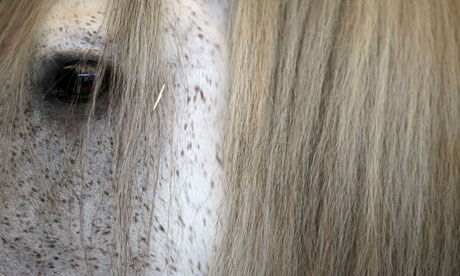Equitherapy
Health professionals say horses can reflect our emotions to bring relief from addiction and stress

In a Sussex field, a large bay horse is galloping around, tail held high. This magnificent creature is one of a new army of animals that is helping therapists to treat everything from addiction to autism to post-traumatic stress disorder.
Reports last week showed that dogs, already known to be invaluable helpmates for blind, deaf, diabetic and epileptic owners, were also being trained to help dementia patients.
Now the psychological benefits of working with horses are being recognised by growing numbers of therapists who work with autistic children, young people with behavioural problems, adults with depression or celebrities with addictions.
"The horse is the perfect mirror, they are very emotional beings; we're only starting to realise how intelligent they are," said therapy counsellor Gabrielle Gardner, of Shine For Life, watching the horse dance around his pen at a farm in Blackstone, a village a few miles north of Brighton.
"A lot of my clients start off being very nervous, so I wouldn't always use such a big horse. One of the reasons I think equine-assisted therapies work so well is that everyone has a reaction to horses; nobody is indifferent. People either love them or fear them, so that's two big emotions that immediately reflect what most of life's issues revolve around. If you can work with an animal like this and overcome the fear, then it isn't a bad starting point."
Gardner has worked with all types of clients, including young offenders, and says a horse picks up on the way people are feeling, mirroring their emotions and responding. As a herd animal attuned to stress and body language, a horse will move away from an angry person, follow someone it trusts and be unsettled when it senses fear.
"It's especially good for people who don't take to talking therapies. Counselling is not a 'one size fits all'. While you might forget a conversation you had with your counsellor a few weeks on, it's unlikely you'll forget what happened when you stood in a field with your counsellor and a horse. It's not like patting a dog; it's a big animal."
Link to this original article link
